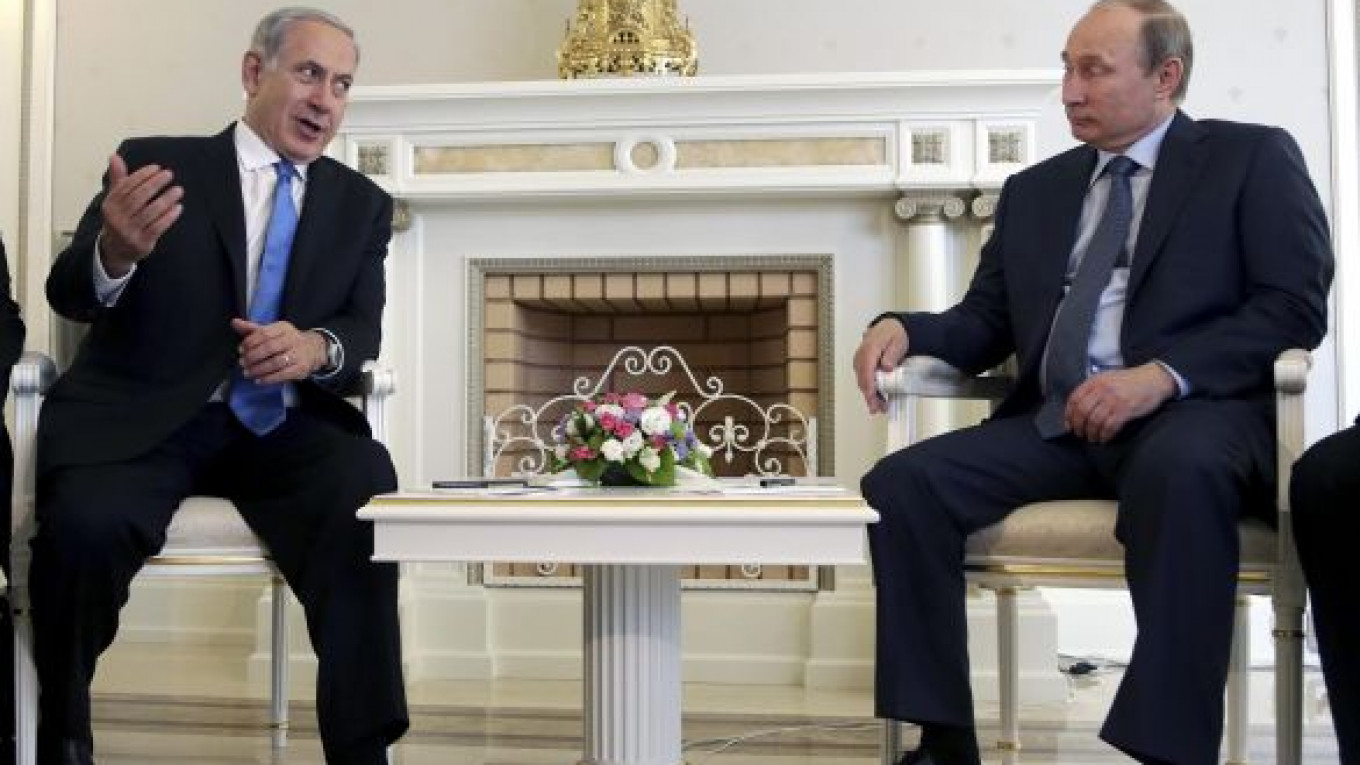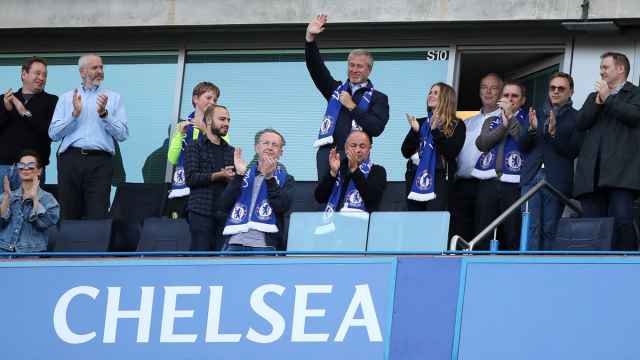Israeli Prime Minister Benjamin Netanyahu reminded President Vladimir Putin of Russia's key role in resolving the crisis in Syria that has already claimed over 80,000 lives during talks on the matter on Tuesday.
In the last week, Putin has hosted a number of top Western leaders, including U.S. Secretary of State John Kerry and British Prime Minister David Cameron, with Syria on the top of the agenda each time.
Following his meeting with Netanyahu, Putin seemed cautious to suggest that any breakthrough had been achieved, saying "it is extremely important to avoid any actions that could aggravate the situation."
The two-year Syria conflict has recently taken on a sectarian dimension, with Human Rights Watch issuing a warning statement on Monday saying it had seen graphic evidence of sectarian violence.
"Only a quick cessation of hostilities and a political settlement can prevent a negative scenario," Putin said after talks with Netanyahu, stressing that "deep and thorough discussions" with Russia were key to improving the security situation in the Middle East.
Experts interviewed by The Moscow Times said visits by heads of leading Western countries to Moscow to discuss Syria proved that Russia's policy had been sensible since the beginning of the conflict in March 2011.
With three top Western leaders having visited Moscow in the past week, the significance of Russia’s role in solving the crisis is clear.
"Girls out at a nightclub know very well that if they are surrounded by guys it must mean they are doing all right," said Georgy Satanovsky, president of the Moscow-based Institute of Middle Eastern Studies.
In a less metaphorical note, Satanovsky said it would be impossible to oust Syrian President Bashar Assad without outside intervention — which is unlikely to happen.
"Times have changed: Russia and China will not allow for a legitimate intervention, and the U.S. will not go for an unsanctioned one," he said.
Secretary-General of the United Nations Ban Ki-moon, the only one with the authority to potentially sanction foreign intervention if it is not vetoed by members of the Security Council, is due to visit Russia on May 16-19th for talks with Foreign Minister Sergei Lavrov.
Ban Ki-moon will meet with Lavrov to discuss key international issues, particularly the Syrian crisis, the Foreign Ministry said in a statement Monday.
The Israeli Prime Minister was expected to urge Putin to cancel deliveries of Russia's cutting-edge S-300 surface-to-air systems to Syria during his visit, a move that would make it virtually impossible to install a no-flight zone, which helped defeat long-term Libyan leader Moammar Gadhafi in 2011.
Israeli warplanes twice attacked arms convoys inside Syria bound for the Lebanese militant group Hezbollah earlier this month, Western media reported, citing foreign senior military and intelligence sources.
Neither leader has mentioned the S-300 missiles following the talks, but analysts have said it is very likely that Russia used potential deliveries as a bargaining chip during negotiations.
"If Russia resolves to sell the S-300 to Syria it would provoke a small-scale Caribbean missile crisis in the area," said Vadim Kozyulin, a senior research fellow at the PIR Center.
"It will also be extremely difficult to deliver these weapons since the path from Russia to Syria by sea is surrounded by NATO states."
Considering that, Kozyulin said, it is unlikely that Russia would take such a risk. At the same time, however, Moscow's role is becoming more significant, as the crisis has stagnated to the point of a deadlock.
Following the U.S. secretary of state's visit to Moscow, Russia and the U.S. sought to convene an international conference to provide Syrian government officials and rebels with an opportunity to establish an interim government.
France's Foreign Minister Laurent Fabius has expressed skepticism about the proposed peace talks, however, telling RTL radio on Tuesday that it would be extremely difficult to agree on suitable representatives from both sides who "don't have blood on their hands."
Syria's information minister, Omran al-Zoubi, told Lebanese al-Manar TV on Monday that "the Syrian government is optimistic, but cautiously optimistic, since words are not enough; there should be subsequent steps," Syria's state-run SANA news agency reported.
Adding to a wide range of Russia-based Syria talks, Putin also met in Sochi on Friday with David Cameron, who stressed that Britain, Russia, America and other countries must "help shape a transnational government that all Syrians can trust to protect them."
On Monday, Cameron carried the same message to Washington, where he met with President Barack Obama.
Contact the author at [email protected]
Related articles:
A Message from The Moscow Times:
Dear readers,
We are facing unprecedented challenges. Russia's Prosecutor General's Office has designated The Moscow Times as an "undesirable" organization, criminalizing our work and putting our staff at risk of prosecution. This follows our earlier unjust labeling as a "foreign agent."
These actions are direct attempts to silence independent journalism in Russia. The authorities claim our work "discredits the decisions of the Russian leadership." We see things differently: we strive to provide accurate, unbiased reporting on Russia.
We, the journalists of The Moscow Times, refuse to be silenced. But to continue our work, we need your help.
Your support, no matter how small, makes a world of difference. If you can, please support us monthly starting from just $2. It's quick to set up, and every contribution makes a significant impact.
By supporting The Moscow Times, you're defending open, independent journalism in the face of repression. Thank you for standing with us.
Remind me later.






